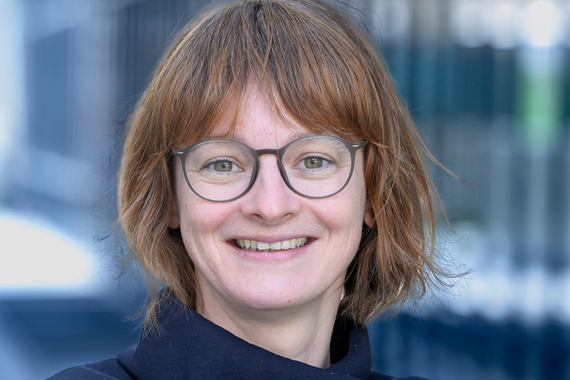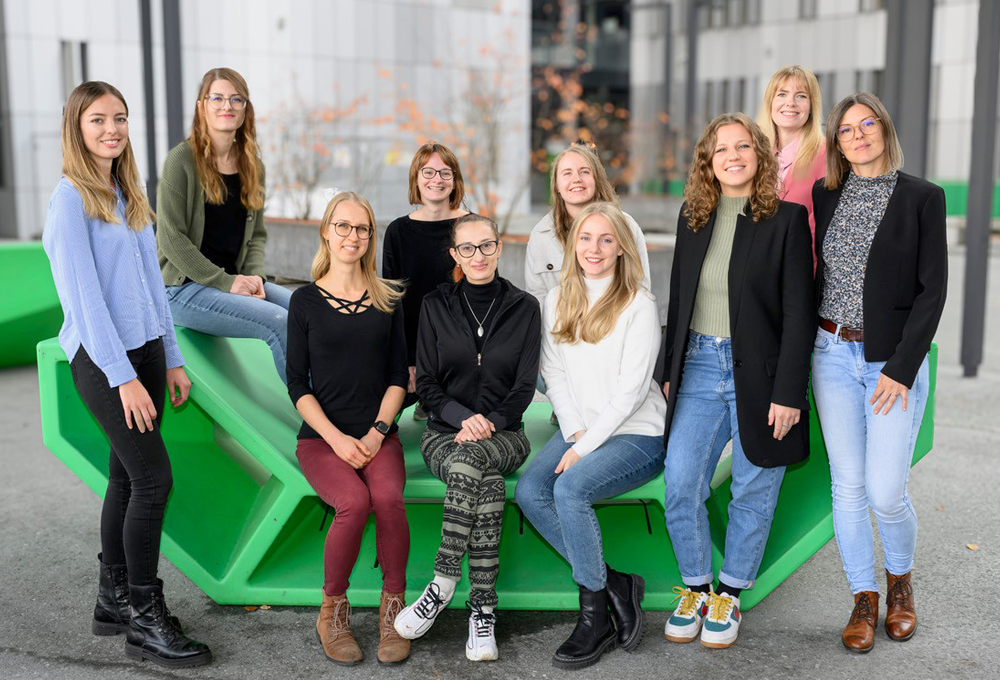- The University
- Studying
-
Research
- Profile
- Infrastructure
- Cooperations
- Services
-
Career
- Med Uni Graz as an Employer
- Educational Opportunities
- Work Environment
- Job openings
-
Diagnostics
- Patients
- Referring physicians
-
Health Topics
- Health Infrastructure
Research team Kargl
Research focus: Inflammation, autoimmunity and cancer
PI: Julia Kargl
Focus: The scientific interests of our group are at the interface of pharmacology and tumor immunology. Our research is focused on the role of the immune system in cancer and how the immune system can be exploited to detect tumors earlier and fight them better. Our international team investigates the immune cell composition in lung cancer and the role of immunosuppressive cells - an important aspect in future development of immune-based drugs, also called tumor immunotherapy.
Network: Employing established cancer cell lines, tumor tissue from consented patients and functional in vitro and in vivo models, our group at the Division of Pharmacology seeks to understand the mechanisms of immunotherapy failure. Active collaborations are in place with the Division of Biophysics, Division of Molecular Biology and Biochemistry, Division of Cell Biology, Histology and Embryology and Diagnostic and Research Institute of Pathology. Further we have close cooperation with the University Clinic, Department of Obstetrics and Gynecology and Division of Oncology.
Projects
Functional characterization of neutrophils in NSCLC
- This project aims to identify neutrophil subpopulations in non-small cell lung cancer (NSCLC) and investigate their immune modulatory properties. Immune suppressive cells in the tumor microenvironment (TME) may explain the failure of immune checkpoint blockade (ICB) in NSCLC. Tumor associated neutrophils (TANs) inversely correlate with T cell content within tumor and the intra-tumor CD8+ / neutrophil ratio can predict responsiveness to ICB, implying immunosuppressive properties. So as to comprehensively characterize TANs we employ high-dimensional flow cytometry screening to seek for differential expression of surface markers on neutrophils of NSCLC patients. Moreover, by functional analysis of lymphocyte – neutrophil co-cultures, we investigate how neutrophil heterogeneity impacts T-cell functionality.
- Duration: 2018-2022
- Funded by: OENB
- Project partners: Luka Brcic (Diagnostic and Research Institute of Pathology), Jörg Lindenmann (Division of Thoracic and Hyperbaric Surgery), A McGarry Houghton (Fred Hutchinson Cancer Research Center, Seattle, USA), Christian Schmees (NMI Tübingen, DE)
Low-density neutrophils in NSCLC and breast cancer
- Lung cancer early detection is crucial to improve curative treatment and increase survival rates. Moreover, new therapies such as immune checkpoint inhibitors (ICI) highlight the need for novel minimally invasive biomarkers to support therapy decisions and monitor treatment response. Low-density neutrophils (LDNs), a neutrophil subtype largely absent in healthy individuals, have been detected in peripheral blood of lung cancer patients. We aim to analyze LDNs as early detection marker for high-risk lung cancer patients and evaluate this method as a tool to monitor ICI therapy response. Further, we will phenotype and characterize LDNs to better understand this neutrophil subpopulation.
- Duration: 2019-2022
- Funded by: FFG
- Project partner: Marija Balic (Division of Oncology)
The role of myeloperoxidase in NSCLC
- Myeloperoxidase (MPO) is an enzyme mostly expressed and secreted by neutrophils. Neutrophils are a prevalent immune cell type in NSCLC and can constrain immune responses and contribute to tumor development. However, many of the mechanisms behind neutrophil actions in NSCLC remain unknown. We hypothesize that MPO is a molecule within the tumor microenvironment that contributes to neutrophil function in the setting of cancer.
- Duration: 2018-2022
- Funded by: Med Uni Graz
- Project partners: Gunther Marsche, Wolfgang Sattler (all Med Uni Graz), McGarry Houghton (Fred Hutch, Seattle, USA), Mike Davies (University of Copenhagen, Dänemark)
Identification of antigen-specific T cells via Ca2+ - NFAT signaling in NSCLC
- The uprising of immunotherapy led to remarkable results in the treatment of oncologic diseases. T cells were placed in the center due to the success of Immune Checkpoint Blockade (ICB) and Adoptive Cell Therapy (ACT). Major limitations for successful ACT in solid tumors are i) the lack of common tumor antigens and ii) the shortcoming of methods to identify neoantigens in individual patients. The aim of the present study is to develop a cost efficient, reliable, and clinically feasible method to identify tumor antigen-specific T cells in NSCLC patients via NFAT-Ca2+-signaling.
- Duration: 2020-2023
- Funded by: Med Uni Graz, MEFOGraz
- Project partners: Roland Malli, Klaus Groschner (all MedUniGraz)
Neutrophil function in pregnancy
- Pregnancy is an immunological challenge for mother and fetus, and the establishment of immune tolerance at the feto-maternal interface is essential. However, a detailed picture of leukocyte composition, function and interactions is still missing. We hypothesize that neutrophils play a crucial role in maintaining immune tolerance at feto-maternal interface in the first trimester of pregnancy.
- Duration: 2019-2023
- Funded by: FWF, Med Uni Graz (DOC31: DP-iDP)
- Project partners: Martin Gauster, Christian Wadsack (all Med Uni Graz), Jürgen Pollheimer (MedUniWien, AUT)
Division of Pharmacology
Ass.-Prof.in Priv.-Doz.in Mag.a
Julia Katharina Kargl, PhD
Julia Katharina Kargl, PhD
T: +43 316 385 74105




